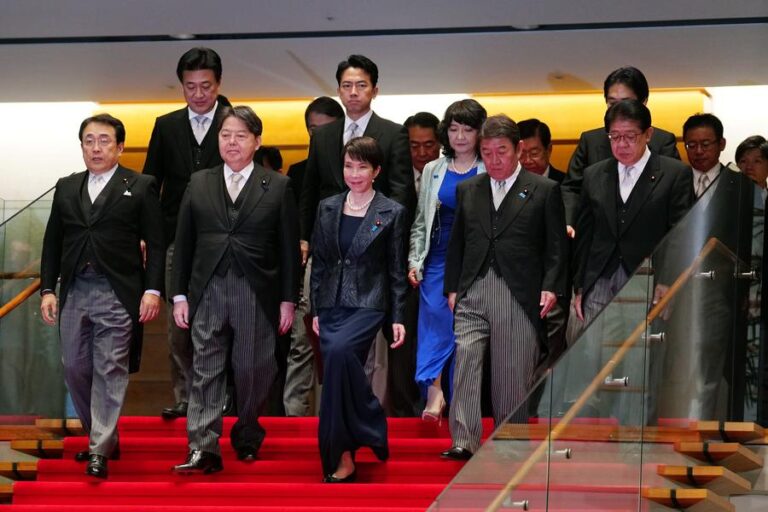* Japanese scholar Yuki Izumikawa criticized Japanese Prime Minister Sanae Takaichi’s recent comments linking the Taiwan issue to Japan’s security legislation, calling them “extremely harmful” and a threat to Japan-China relations.
* Izumikawa warned that Japan’s potential military involvement in a Taiwan conflict would escalate tensions, particularly for regions like Okinawa, which could become a battleground due to increasing joint military activities with the United States.
TOKYO, Nov. 19 (Xinhua) — Japanese Prime Minister Sanae Takaichi’s recent erroneous remarks on China’s Taiwan are “extremely harmful,” offering no security gains for Japan or its people while posing significant risks to Japan-China relations, Japanese scholar Yuki Izumikawa warned in a recent interview with Xinhua.
During a parliamentary hearing earlier this month, Takaichi cited the so-called “survival-threatening situation” in the country’s deeply divisive security legislation and linked it to the Taiwan question, suggesting Tokyo might treat the Taiwan question as grounds for military involvement.
Izumikawa, a special research fellow from Okinawa University, called such comments “extremely serious” when made in the Diet, Japan’s parliament.
“Japan and China are important neighbors with deep economic and cultural ties. If Takaichi’s remarks damage bilateral relations or hinder exchanges, it would be a grave situation,” he said.
Takaichi later claimed her comments were consistent with the government’s long-standing position. Izumikawa dismissed this as “absurd,” noting that previous governments have never stated that the Taiwan Strait could trigger Japan’s right to collective self-defense.
“Former Prime Minister Shinzo Abe once said ‘a Taiwan contingency is a Japan contingency,’ but he made that comment in an online speech after leaving office, not in an official Diet session,” he noted.
Izumikawa criticized Takaichi for stoking fears of a “Taiwan contingency,” calling it inappropriate and dangerous.
He also stressed Taiwan’s painful history under Japanese colonial rule after the unequal Treaty of Shimonoseki, which makes Japan’s statements on Taiwan particularly sensitive for the Chinese people.
He recalled that the 1972 joint statement between Japan and China states that the Japanese government fully understands and respects the position of the Chinese government that Taiwan is an inalienable part of China’s territory.
Izumikawa emphasized that the Taiwan issue is China’s internal affair. If Japan uses the pretext of a “survival crisis” to intervene with force, it would, from China’s perspective, amount to an act of aggression.
He warned that any military conflict would severely impact Japan domestically, particularly islands like Okinawa, where the Self-Defense Forces and U.S. military have been increasing joint deployments and exercises.
“If conflict occurs, these areas would become battlefields. It cannot be said that they are dragged into war — it would be Japan itself actively stepping into the war. This is extremely dangerous,” he warned.
(Video reporters: Yang Zhixiang, Chen Zean; Video editors: Liang Wanshan, Hui Peipei)■

